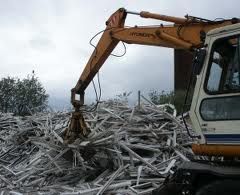
Belgium-based recycling firm VinyLoop released a White Paper in November aimed at raising awareness among manufacturers, retailers, policymakers and the public that recycling can dramatically shrink PVC’s environmental footprint and boost sustainability.
The white paper imdicated that VinyLoop’s recycled PVC cuts primary energy demand by by 46%, compared to producing virgin PVC compound. R-PVC also slashes global warming potential by 39% and water consumption by 72%.
“We as a material producer take our responsibility to inform the whole value chain about the environmental footprint,” said Paolo Groppi, General Manager of VinyLoop. “This White Paper aims to create more demand pull for recycling, and demonstrates how recycling supports the growing demand for a more sustainable way of life.” said Christian Thamm, marketing and development manager of VinyLoop. Further quality recycling adds economic value to marketing of manufacturers, they said.
The White Paper showed how VinyLoop’s “Life Cycle” approach considers the environmental impact from all stages of a product’s lifetime. “We have also calculated an LCA for a final product containing recycled materials to showcase the influence of recycling” said Thamm, citing a garden hose made with 50% of VinyLoop that saves almost 20% of Global Warming Potential, as an example. The green marketing potential for its recycled PVC, or R-PVC, to produce garden and air hoses, and waterproofing membranes was also noted by VinyLoop. “The VinyLoop process produces a high-quality secondary PVC compound (R-PVC) to replace conventionally produced PVC Compound,” said Paolo Groppi, VinyLoop general manager.
The White Paper is part of a call to action, in the framework of the industry’s VinylPlus campaign, to recycle 800.000 tonnes of PVC per year in 2020. Recycling can assist EU’s Growth Strategy Europe 2020, which aims to cut greenhouse gas emissions 20% and increase energy efficiency 20%.
(PRA)












